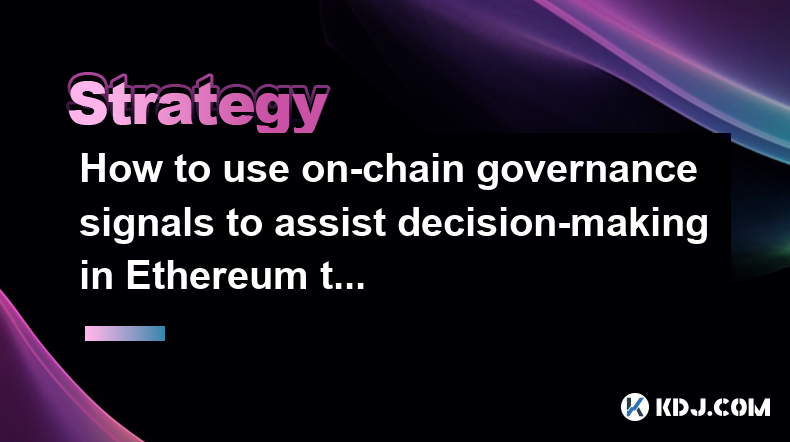-
 Bitcoin
Bitcoin $91,986.3241
-4.66% -
 Ethereum
Ethereum $2,510.6411
-10.85% -
 Tether USDt
Tether USDt $0.9998
-0.04% -
 XRP
XRP $2.3291
-9.84% -
 BNB
BNB $616.1864
-6.09% -
 Solana
Solana $141.9785
-15.14% -
 USDC
USDC $0.9998
-0.02% -
 Dogecoin
Dogecoin $0.2109
-13.27% -
 Cardano
Cardano $0.6867
-11.23% -
 TRON
TRON $0.2401
-2.25% -
 Chainlink
Chainlink $15.2541
-13.65% -
 Stellar
Stellar $0.3010
-9.64% -
 Avalanche
Avalanche $21.7707
-12.89% -
 Sui
Sui $2.8843
-16.15% -
 Litecoin
Litecoin $116.7665
-10.20% -
 Toncoin
Toncoin $3.4113
-9.84% -
 Hedera
Hedera $0.1973
-6.68% -
 UNUS SED LEO
UNUS SED LEO $8.7972
-9.88% -
 Shiba Inu
Shiba Inu $0.0...01375
-11.18% -
 MANTRA
MANTRA $8.1974
-2.43% -
 Polkadot
Polkadot $4.3888
-11.28% -
 Hyperliquid
Hyperliquid $19.9907
-14.17% -
 Ethena USDe
Ethena USDe $1.0003
0.00% -
 Bitcoin Cash
Bitcoin Cash $292.8485
-10.74% -
 Bitget Token
Bitget Token $4.6339
-7.70% -
 Dai
Dai $0.9999
0.01% -
 Uniswap
Uniswap $7.9587
-12.19% -
 Monero
Monero $228.7844
-3.36% -
 NEAR Protocol
NEAR Protocol $3.0441
-11.05% -
 Bittensor
Bittensor $399.0732
-7.25%
How to open an account to invest and buy coins
By meticulously researching cryptocurrency exchanges, verifying your identity, implementing security measures, funding your account, and selecting desired coins, you can effortlessly open a crypto-trading account and begin your investment journey.
Jan 08, 2025 at 05:38 pm

How to Open an Account to Invest and Buy Coins: A Comprehensive Guide
Introduction
The rapidly evolving cryptocurrency market offers numerous opportunities for investment and trading. However, it is crucial to first establish an account with a trusted cryptocurrency exchange to facilitate these activities seamlessly and securely. This detailed guide will provide a step-by-step roadmap to help you successfully open an account and embark on your cryptocurrency journey.
Key Points:
- Choose a reputable cryptocurrency exchange
- Verify your identity and provide personal information
- Set up security measures such as two-factor authentication (2FA)
- Fund your account with fiat currency or cryptocurrency
- Select the desired coin and place a buy order
Steps to Opening a Cryptocurrency Account:
1. Select a Reputable Exchange:
The choice of cryptocurrency exchange is paramount and should be meticulously considered. Factors such as security measures, trading fees, liquidity, coin offerings, and customer support should be evaluated. Consider researching and comparing exchanges to determine the one that best aligns with your needs and preferences.
2. Verify Your Identity:
To comply with anti-money laundering (AML) and know-your-customer (KYC) regulations, most reputable exchanges require you to verify your identity by providing various forms of identification. This can include government-issued IDs, proof of address, and personal information. The verification process ensures the legitimacy of account holders and prevents potential misuse.
3. Set Up Security Measures:
Once your identity is verified, it is imperative to enhance the security of your account by enabling two-factor authentication (2FA). This additional layer of protection requires a one-time password (OTP) or biometric verification for every login attempt, making it significantly more challenging for unauthorized individuals to access your account.
4. Fund Your Account:
Before you can purchase coins, you need to fund your account with either fiat currency (e.g., USD, EUR) or another cryptocurrency. The specific deposit methods offered may vary depending on the exchange you choose. Common options include bank transfers, credit/debit cards, and cryptocurrency wallets. Carefully review the fees associated with each deposit method to avoid any unnecessary expenses.
5. Select the Desired Coin and Place a Buy Order:
With your account funded, you can now begin exploring the available coins and selecting the ones you wish to invest in. Research the historical performance, market trends, and fundamentals of each coin to make informed decisions. Once you have identified the desired coin, place a buy order specifying the purchase price, quantity, and order type (e.g., market order, limit order).
FAQs:
1. What are the advantages of opening a cryptocurrency account?
Opening a cryptocurrency account provides access to a wide range of coins, the ability to participate in trading and investing, and potential profit opportunities. Additionally, it enables you to store and manage your cryptocurrency资产 in a secure environment.
2. What documents are required for identity verification?
Generally, you will need to provide a government-issued ID (e.g., passport, identity card) and proof of address (e.g., utility bill, bank statement). Some exchanges may also require additional information such as a selfie or video verification.
3. How do I check the fees associated with a particular exchange?
The fees charged by cryptocurrency exchanges can vary significantly. You should carefully review the fee schedule or refer to external sources to compare and select an exchange that offers competitive rates.
4. What is two-factor authentication and why is it important?
Two-factor authentication (2FA) adds an extra layer of security to your account by requiring a one-time password or biometric verification in addition to your regular password. This makes it much harder for unauthorized individuals to access your account even if they have your password.
5. What types of coins are available to trade on cryptocurrency exchanges?
Reputable cryptocurrency exchanges typically offer a wide range of coins, including Bitcoin (BTC), Ethereum (ETH), Litecoin (LTC), Ripple (XRP), and other popular digital资产. Some exchanges may also offer less known or emerging coins.
Disclaimer:info@kdj.com
The information provided is not trading advice. kdj.com does not assume any responsibility for any investments made based on the information provided in this article. Cryptocurrencies are highly volatile and it is highly recommended that you invest with caution after thorough research!
If you believe that the content used on this website infringes your copyright, please contact us immediately (info@kdj.com) and we will delete it promptly.
- 30M+ Unique Crypto Tokens and Growing!
- 2025-02-25 09:10:28
- FloppyPepe (FPPE): The AI Token Set to Outperform Bitcoin (BTC) in 2025
- 2025-02-25 09:10:28
- Ethereum’s Pectra Upgrade Goes Live on the Holesky Testnet
- 2025-02-25 09:10:28
- Riot Platforms (RIOT) Produced Fewer Bitcoin (BTC) in 2024 as the Cost to Mine Rose Sharply
- 2025-02-25 09:10:28
- Pepe Coin and PlutoChain ($PLUTO): Two Projects That Could Shape the Future of Blockchain Technology
- 2025-02-25 09:10:28
- Can Nation-States Fight Bitcoin With Their Own PoW Network?
- 2025-02-25 09:10:28
Related knowledge

How to utilize long-short hedging strategies in Ethereum trading?
Feb 25,2025 at 09:07am
Key Points:Understand the concept of long-short hedgingChoose appropriate assets for long and short positionsManage risk and leverageMonitor positions and adjust as neededExplore advanced strategiesHow to Utilize Long-Short Hedging Strategies in Ethereum Trading:1. Comprehend Long-Short HedgingLong-short hedging involves simultaneously holding opposite ...

How to use on-chain governance signals to assist decision-making in Ethereum transactions?
Feb 25,2025 at 07:06am
Key PointsOn-chain governance signals allow individuals to participate and influence the decision-making process of Ethereum-related projects and protocols.These signals help users make more informed decisions, especially when performing complex transactions involving Ethereum or dealing with advanced protocols like decentralized exchanges.Monitoring on...

How to deal with black swan events in Ethereum trading?
Feb 25,2025 at 05:18am
Key Points:Understand the nature and characteristics of black swan eventsImplement risk management strategies to mitigate potential lossesEmploy advanced trading techniques to exploit market fluctuationsStay informed and adaptable to evolving market conditionsLeverage social media and community support for insights and guidanceHow to Deal with Black Swa...

What impact does Ethereum Gas fee fluctuation have on trading strategies?
Feb 25,2025 at 06:36am
Key Points:Understand the concept of Ethereum gas fees and their impact on trading strategies.Explore the factors influencing gas fee fluctuations and their implications for traders.Identify strategies to mitigate the impact of high gas fees on trading.Understanding Ethereum Gas FeesEthereum gas fees represent the transaction costs associated with execu...

How to use Bitcoin’s holding data to predict market direction?
Feb 25,2025 at 07:01am
Key Points:Understanding Bitcoin's Holding DataAnalyzing Long-Term Holder and Short-Term Holder DistributionMonitoring Whales and Shrimp ActivityEvaluating Exchange and Non-Exchange BalancesUsing Holding Data to Identify Market TrendsHow to use Bitcoin’s holding data to predict market direction?Understanding Bitcoin's holding data is crucial for predict...

How to apply the "mean regression" strategy in Bitcoin trading?
Feb 25,2025 at 08:01am
Key PointsUnderstanding Mean RegressionIdentifying Mean Reversion SignalsDetermining Entry and Exit PointsPosition SizingRisk ManagementUnderstanding Mean RegressionMean regression refers to a phenomenon in statistics where a variable that has deviated significantly from its average tends to revert back to the middle over time. This concept applies to f...

How to utilize long-short hedging strategies in Ethereum trading?
Feb 25,2025 at 09:07am
Key Points:Understand the concept of long-short hedgingChoose appropriate assets for long and short positionsManage risk and leverageMonitor positions and adjust as neededExplore advanced strategiesHow to Utilize Long-Short Hedging Strategies in Ethereum Trading:1. Comprehend Long-Short HedgingLong-short hedging involves simultaneously holding opposite ...

How to use on-chain governance signals to assist decision-making in Ethereum transactions?
Feb 25,2025 at 07:06am
Key PointsOn-chain governance signals allow individuals to participate and influence the decision-making process of Ethereum-related projects and protocols.These signals help users make more informed decisions, especially when performing complex transactions involving Ethereum or dealing with advanced protocols like decentralized exchanges.Monitoring on...

How to deal with black swan events in Ethereum trading?
Feb 25,2025 at 05:18am
Key Points:Understand the nature and characteristics of black swan eventsImplement risk management strategies to mitigate potential lossesEmploy advanced trading techniques to exploit market fluctuationsStay informed and adaptable to evolving market conditionsLeverage social media and community support for insights and guidanceHow to Deal with Black Swa...

What impact does Ethereum Gas fee fluctuation have on trading strategies?
Feb 25,2025 at 06:36am
Key Points:Understand the concept of Ethereum gas fees and their impact on trading strategies.Explore the factors influencing gas fee fluctuations and their implications for traders.Identify strategies to mitigate the impact of high gas fees on trading.Understanding Ethereum Gas FeesEthereum gas fees represent the transaction costs associated with execu...

How to use Bitcoin’s holding data to predict market direction?
Feb 25,2025 at 07:01am
Key Points:Understanding Bitcoin's Holding DataAnalyzing Long-Term Holder and Short-Term Holder DistributionMonitoring Whales and Shrimp ActivityEvaluating Exchange and Non-Exchange BalancesUsing Holding Data to Identify Market TrendsHow to use Bitcoin’s holding data to predict market direction?Understanding Bitcoin's holding data is crucial for predict...

How to apply the "mean regression" strategy in Bitcoin trading?
Feb 25,2025 at 08:01am
Key PointsUnderstanding Mean RegressionIdentifying Mean Reversion SignalsDetermining Entry and Exit PointsPosition SizingRisk ManagementUnderstanding Mean RegressionMean regression refers to a phenomenon in statistics where a variable that has deviated significantly from its average tends to revert back to the middle over time. This concept applies to f...
See all articles

















































































